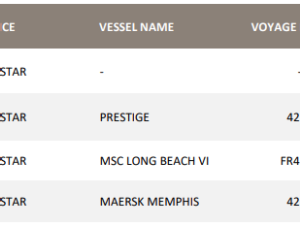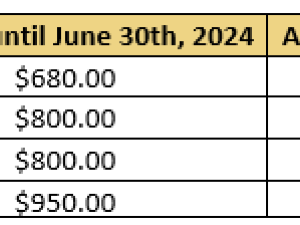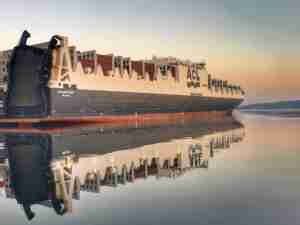Karma and Some Comfort in the Cosco-Orient Overseas Deal
By: Shelly Banjo | Jul 10 2017 at 01:11 AM | Liner Shipping
Karma can hurt. At least this pain comes at a comforting price.
Cosco Shipping Holdings Co. agreed to pay $6.3 billion to acquire Orient Overseas International Ltd., the Hong Kong container-shipping group that China reportedly helped bail out from the verge of bankruptcy in the 1980s.
Swallowing Hong Kong’s largest box mover catapults the state-owned Chinese company to the world’s third-biggest shipping line, and the largest serving the Asia-North America route. Perhaps more importantly, it tightens China’s control of the ports and shipping lines that turned Hong Kong into a global trade hub.
The deal itself wasn’t a shock. The shipping industry has been reckoning with depressed demand and low rates for years, leading to billions of dollars in bankruptcies and consolidation in a global container fleet now controlled by just three main groups. Orient Overseas, the ninth-biggest line with a market share of less than 3 percent market, wouldn’t have been able to keep sailing solo.
What did surprise investors was the eye-popping price, which represents an 112 percent premium to the stock’s one-year trading average. The transaction is the largest by value in shipping since 2003, when A.P. Moller Group merged two publicly traded companies to create the Danish conglomerate A.P. Moller-Maersk A/S.
Premium to one-year average price: 112%
Cosco’s initial bid for Orient Overseas more than six months ago hovered around the $4 billion mark, according to the Wall Street Journal. That figure hardly budged as recently as June, and for good reason: Most shipping deals in the last two years or so have been done at a price-to-book ratio of about one.
CMA-CGM SA’s acquisition of Neptune Orient Lines Ltd. was done at a ratio of one, and Maersk’s purchase of Hamburg Sud represented a 1.3 multiple, according to Jefferies Group LLC research.
Cosco is set to pay around 1.4 times Orient Overseas’s book value.
A company in a weakened position has few chips to bargain for a higher offer. And it’s not as if there was a white knight for Orient Overseas, whose year-on-year revenue dropped by 11 percent in 2016 and 8 percent the year before.
Family history might count more than leverage, though. Orient Overseas has been controlled by the pro-Beijing Tung family since 1947. The founder’s son and former chairman Tung Chee-hwa was Hong Kong’s first chief executive after the 1997 handover to China.
It’s unlikely the third-generation CEO, Andy Tung, would have been prepared to lose control of the family empire without holding out for a handsome reward for shareholders.
This column does not necessarily reflect the opinion of Bloomberg LP and its owners.









